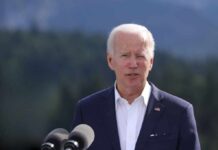
Javier Milei’s presidential win in Argentina earlier this month marks a significant pivot toward anti-globalist leadership in a striking victory for conservative politics. This shift underscores a growing global sentiment that has taken root in the United States and is now manifesting in South America.
Mike Huckabee, the former governor of Arkansas, highlighted this development during a discussion on Newsmax on Tuesday. Huckabee emphasized that government spending and open borders have led to disastrous consequences, a sentiment Milei resonates with. Milei, who has been unfairly labeled as a “far-right extremist” by some media outlets, stands instead for personal liberty and limited government intervention, aligning with a more conservative worldview that echoes through Huckabee’s commentary.
On Tuesday's "Wake Up America," Mike Huckabee says recent election wins by the Netherlands' Geert Wilders and Argentina's Javier Milei bode well for Donald Trump in 2024.@GovMikeHuckabee @RobFinnertyUSA @SharlaMcBride pic.twitter.com/NMHghWHI51
— NEWSMAX (@NEWSMAX) November 28, 2023
Milei’s electoral success — clinching the presidency with a decisive 56% of the vote against the leftist Peronist Economy Minister Sergio Massa — is not just a local phenomenon but a mirror reflecting the desires of citizens worldwide who are weary of large-scale government interventions. The measures he promises, such as the dissolution of the central bank, abandoning the peso, and slashing government spending, aim to redirect the Argentine government away from the brink of economic disaster.
Huckabee notes that the media often misjudges and underestimates the power of the people, a power that Milei’s victory signifies. The potential visit from President Donald Trump to Buenos Aires could further this burgeoning alliance, signaling a strengthening of conservative ties across hemispheres.
Milei’s win also brings attention to the need for economic reform. The Mises Institute, an organization that promotes a libertarian economic perspective, notes that Milei’s campaign offers vital lessons for the U.S. With Americans facing the squeeze of inflation and federal intervention in critical sectors, Milei’s approach to politics sparks a conversation about the necessity for a more laissez-faire economic policy, which includes sound money and reduced government meddling in education, housing, healthcare, and energy.
Milei’s approach is rooted in the principles of anarcho-capitalism. This philosophy advocates for eliminating the state in favor of individual sovereignty and open markets. His election is a testament to the traction this ideology is gaining, even in regions previously dominated by socialist policies.
The editorial commentary from Mises Wire suggests that while Milei faces significant opposition within the Argentine legislature, his ascension to power is a clear indicator of public frustration with long-standing economic woes. The U.S. can learn from Milei’s determination to confront these issues head-on, advocating for a return to sound monetary policy and an end to costly foreign interventions.
Milei’s victory symbolizes a broad movement that opposes globalist policies and big government, echoing the conservative sentiments that resonate with many in the United States. As America gears up for its next electoral cycle, Milei’s win may signal a return to more traditional conservative values and a reaffirmation of anti-globalist principles in governance. As suggested by Huckabee, this conservative surge could be the precursor to a more significant political realignment in favor of individual liberty and economic freedom.















